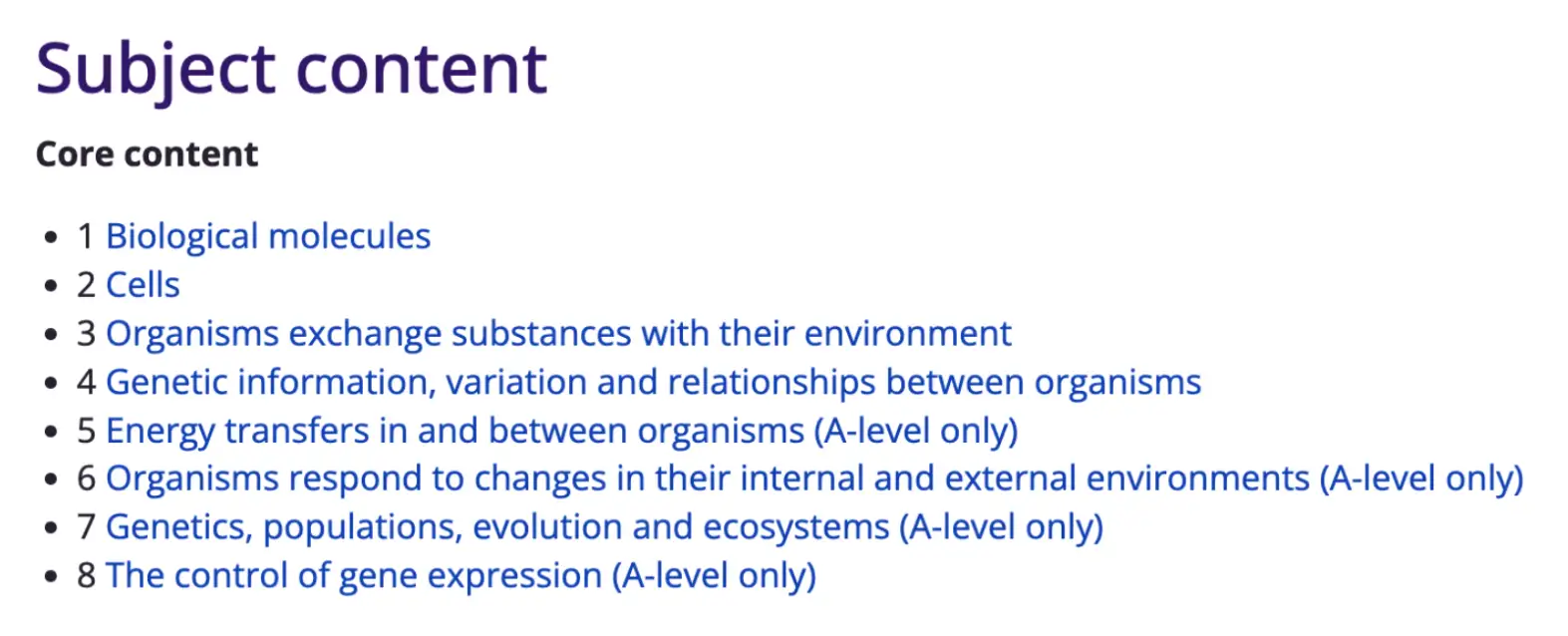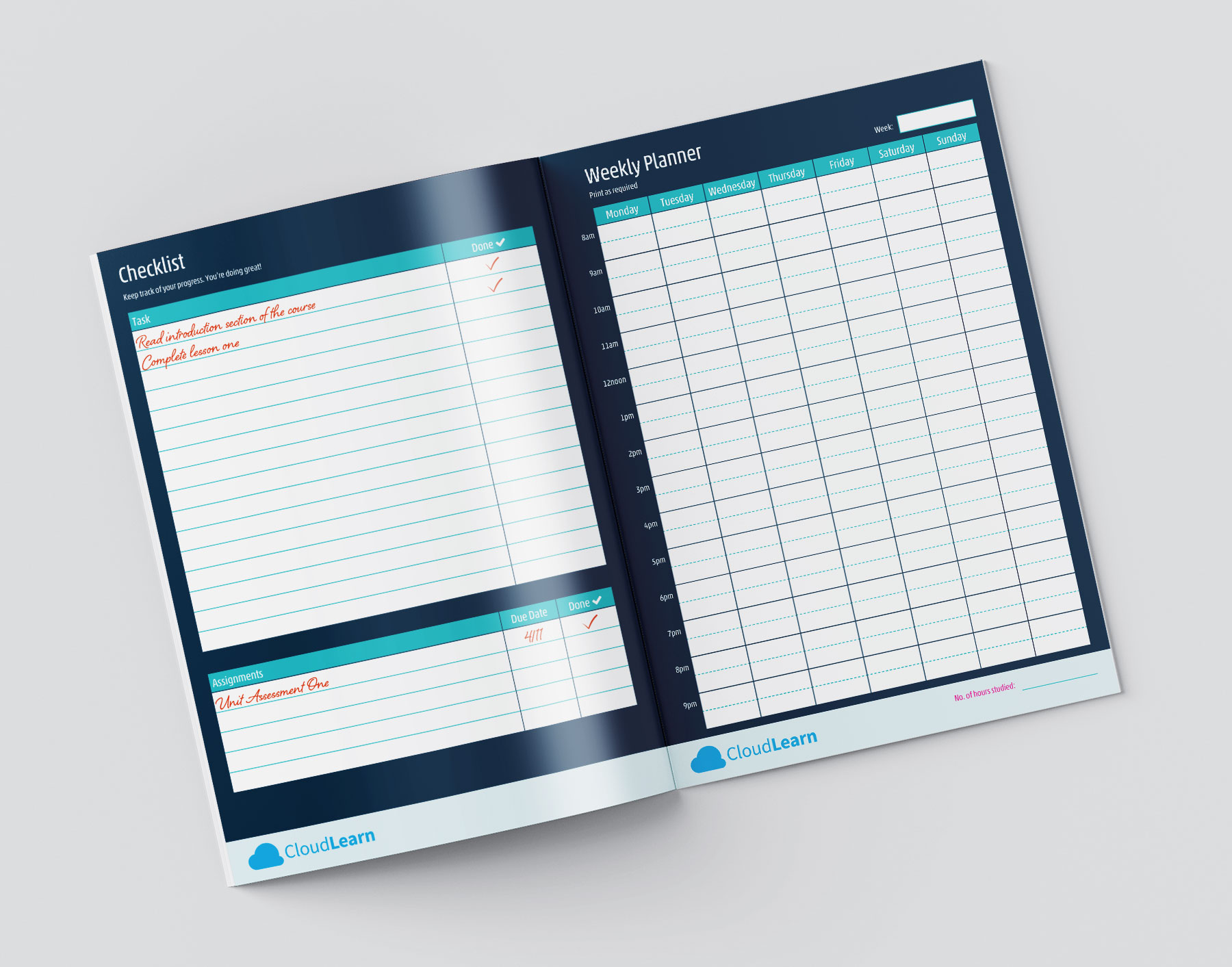Best Ways to Revise for A Levels + Common Mistakes to Avoid

January 29, 2026 | 28 days | Hacks & Tips
Welcome to our guide on preparing for A Levels, an important step in your academic journey. It's well-known that while students are taught a lot at school, effective study techniques are often not part of the curriculum. This oversight can leave even the brightest students struggling to achieve their best marks. Our experienced tutors and student advisors have noted this gap and are here to help.
In this post, you will find science-backed techniques, top tips from students who have achieved AAA grades, and direct advice from examiners. These resources are designed to enhance your study methods and help you excel in your A Level exams. Let's explore them!
How to Revise Effectively for A Levels: A* Students’ Best A Level Revision Tips
Achieving top grades in A Levels requires more than just understanding the content; it demands strategic revision techniques. We've gathered insights from students who have excelled, securing A* grades across their subjects. Their shared strategies are not just about hard work but about revising smarter. Here, we outline their top tips to help you optimise your study sessions and turn effort into high scores.
1. Start early
Beginning your revision early gives you a significant advantage. It allows ample time to deeply understand the content and retain information, reducing stress as exams approach. Starting months ahead lets you pace your learning, ensuring that no topic is rushed or overlooked. Early preparation also means you have time to clarify any doubts and reinforce learning through repetition, making recall in the exam much smoother.
2. Familiarise yourself with the syllabus
Knowing your syllabus inside out is crucial for effective revision. A* students often stress the importance of aligning their study sessions with the exam syllabus to ensure they cover every topic thoroughly. This approach guarantees that you spend time only on material that will be tested, optimising your study sessions and ensuring a comprehensive understanding of what examiners are looking for.
For example, let's have a look at the syllabus of the Biology A-level as evaluated by AQA:

We recommend using the syllabus as a map to guide you along the process. Within each unit, point out its subsections and utilise them as a checklist of the topics you need to cover by the day of the exam. In theoretical subjects like Biology, topics are organised in such a way that they correlate with each other, so following the suggested order will help you delve deeper into topics gradually.
Pro tip: Ask your assigned tutor to help you determine how long each topic may require to appoint the necessary study time to each of them, making sure you can cover everything for the exam.
3. Organisation is key
Top students maintain organised study habits. This includes setting a clear revision timetable, organising study notes, and having a designated study space. Keeping your materials and schedule organised helps minimise wasted time and maximises productivity. Being systematic in your approach to studying can make the revision process less overwhelming and more manageable, leading to better outcomes.

Let's explore this example of a timetable: Here, this student dedicates two hours per day to each of their three subjects, and another two hours to revise everything, adding up to 8 daily hours from Monday to Saturday. You can also choose to dedicate one entire day per subject, for a more intensive approach, and dedicate every Friday to revise what you learned during the week. You can also decide how many days a week to study, and for how many hours.
This is completely up to you, as long as you can complete the 360 total study hours per subject to prepare for the exam. That is how flexible studying online is!
4. Past papers are the holy grail
Practising past exam papers is a universally endorsed strategy by high achievers. It helps familiarise yourself with the exam format and question styles, and also allows you to time your responses. By regularly solving past papers, you can identify your strong and weak areas, adjust your revision focus accordingly, and develop confidence in handling the types of questions that will appear on the exam.
5. Your own words are ok, but include key concepts!
While it's beneficial to paraphrase and make notes in your own words for better understanding, A* students emphasise the importance of incorporating key concepts and terminology specific to the subject. This practice ensures that your answers meet the criteria that examiners are looking for, demonstrating not only your understanding but also your ability to communicate it effectively in the expected academic style.
6. Practice as you go
It's essential to test your understanding continually. Engage with practice questions as you study each topic rather than saving them all for a final review session. This immediate feedback helps you solidify your knowledge and rectify misconceptions early, preventing them from becoming ingrained errors.
7. Relate your subjects to everyday life
To enhance memory retention, relate study material to everyday scenarios or personal experiences. Imagine, for instance, you need to learn the relation between altitude and temperature for a Geography A-level. Remember that time when you travelled to the mountains and the summits were covered in snow despite the weather being nice and warm at the bottom? That experience can help you remember how the higher the altitude, the lower the temperature!
This method helps in anchoring information more securely in your memory, making it easier to recall under exam conditions. Other methods include creating acronyms and associations with words, sayings, or songs! It's a practical way to make learning more engaging and less of a chore.
8. Select your A-levels wisely
Examination boards offer a huge selection of subjects for you to choose from, and choosing the right A-levels will make the difference while you prepare for your exams. While considering your future career prospects is of utmost importance, choosing subjects that you like or find easy is the key to staying motivated and surpassing difficulty.
Find out what are the easiest A-levels and make a choice that will be useful but also easy to cope with.
Choose the right A-Levels for youEnrol with CloudLearn today to get started.
What's the best way to revise for A levels? 7 proven techniques
Unlock your potential with these seven revision techniques tailored for A Level students. From optimising study sessions to enhancing recall, these methods are designed to boost efficiency and retention and have been scientifically proven to make your study sessions more effective, paving the way for academic success in your A Level exams.

Short study sessions
Short, focused study sessions are more effective than long cramming periods. Breaking your revision into manageable 20 or 30-minute chunks can enhance information retention and prevent burnout, allowing your brain to absorb details more efficiently during each session.
Pro tip: To stay motivated and respect your study and break times, you can use 'study with me' videos, where another student has recorded and timed their study sessions and breaks.
Studying at the same hour each day
Creating a consistent study schedule by revising at the same time each day can train your brain to be more prepared to learn during those times. This routine helps establish a rhythm, making studying a regular part of your daily habits.
Avoiding re-reading and highlighting
Re-reading and highlighting are less effective than more active study methods. These techniques often lead to a false sense of familiarity with the material rather than a deeper understanding. Focus on techniques that require more engagement with the content.
Using flashcards
Flashcards are excellent tools for reinforcing memory through active recall and spaced repetition. This method is particularly effective for learning definitions, formulas, and key concepts that require frequent review. Additionally, they allow you to isolate concepts, forcing you to not depend on context and thus recall them more easily.
Setting a goal for each study session
Having a clear objective for each study session can significantly increase productivity. Set specific goals, like mastering a particular concept or completing a set number of practice questions, to give your sessions direction and purpose. Aside from the cognitive effects these techniques may have, having a defined goal mainly helps with motivation, as you will feel the realisation of reaching it with every session.
Pretending you're a teacher
Explaining your material as if you are teaching helps organise information more logically and clearly in your mind. This technique, known as the Feynman Technique, enhances understanding and retention by forcing you to simplify complex topics.
From a cognitive point of view, learning a topic to remember is different than learning to later teach it to someone else, as the information is stored in different ways. Learning for teaching will give you a more logical and straightforward perspective, helping you recall concepts on the day of the exam.
Background music is not an ally
While it may be tempting to study with music, research suggests that quiet or ambient noise creates the best environment for concentration. Music, especially with lyrics, can interfere with your cognitive processes and reduce the effectiveness of your study sessions. This is why classical music or the now popular lo-fi music style are a much better option for studying than listening to your favourite pop star.
Looking to excel in your A-Level exams?Get the qualified at CloudLearn!
A Level study tips from examiners
Examiners provide invaluable insights for mastering the actual exam day. Their tips emphasise not only the crucial practices to adopt in the last few days before the exam but also the strategies to effectively handle the exam itself. Here, we explore key recommendations that focus on maximising exam performance through careful reading, time management, clarity of expression, and efficient communication.
Read the questions carefully
Taking the time to thoroughly read and understand each question is critical. Examiners stress the importance of this practice as it prevents misunderstandings and ensures that your answers are relevant and accurately address what is being asked. After writing your answer, read it again to ensure that you are truly answering the question requested.
Keep track of your time for each question
Effective time management can significantly impact your performance. Allocate specific amounts of time to each question based on their marks and complexity to ensure you have enough time to address all parts of the exam without rushing through important sections.
Pro tip: this can be more easily achieved by testing your time management during your revision sessions, and tracking how long you take to solve mock exams and questions individually.
Remember: quantity doesn't equal quality
Quality of content is far more important than quantity. Examiners recommend focusing on concise, well-thought-out responses rather than filling your answer sheet with irrelevant details. Clear and direct answers are often scored higher than lengthy, unfocused responses.
Avoid redundancy in your responses
Redundancy can dilute the impact of your answers and waste valuable exam time. Examiners advise against repeating the same points, as many students tend to repeat information expressed with different words. Instead, focus on presenting new information and insights in each part of your response to keep your answers crisp and direct.
Stay positive and avoid stress
Aside from the knowledge you've gathered, motivation and stress play a key role on the day of the exam. Stressing too much can play tricks on your confidence and lead to mistakes. The night before the exam, practice some meditation and treat yourself to things you like to stay relaxed.
During the exam, think of how much you've prepared for this moment and how, even if you failed, you can always resit your A-levels and try again later.

Are you an adult returning to education? Find out more about what it's like to take A-levels for mature students.
Looking to excel in your A-Level exams?Discover the power of CloudLearn's online platform.
Fast-track your A Levels with CloudLearn courses!
You don't have to go through it alone - We're your study buddies!
As you embark on your A Level revision journey, remember: you're not alone. Whether you're wrestling with thermodynamics, tackling historical debates, or conjugating verbs, we're here to support you every step of the way.
At CloudLearn, we provide not just resources but a community and expert guidance that make studying less daunting and more achievable. So, harness the power of effective strategies, connect with peers, and leverage our 1:1 expert support to turn your A Level goals into reality. Dive into our A Level online courses knowing we're here to help you succeed and make the most of your revision time!
Frequently Asked Questions
When should I start revising for a levels?
The regular revision time for A-levels is two years if studying in 6th form. However, students taking online courses can decide to fast-track their courses, studying more intensively to reach their goals in a shorter period. Depending on the number of A-levels you want to take, it can be possible to reduce that time to 1 year or less!
How many hours should you revise for A Levels?
In line with the previous question, you need to calculate how many daily hours you need to dedicate to studying based on how much time you have until the day of the exam. Use our study time calculator to find out what the ideal study hours are monthly, weekly, and daily.
How long before should you revise for A Levels?
Many students wonder "Is 3 months enough to revise for A-levels?" Or "Is 1 month enough to study for A-levels?". The truth is it depends on your possibilities and the study schedule you have set up. Again, the number of A-levels you are preparing and the time you have until the day of the exam are crucial to understanding how many daily hours you need to dedicate to studying. In addition, study time should match the rest of the activities on your schedule.
In terms of revision, we highly encourage students not to leave revision for the end, but to set up regular revision sessions to ensure all concepts are fresh in their minds and don't need to do any last-minute revision.
How many subjects should I revise per day?
Most students take 3 or 4 A-levels, which leads to them having to distribute their time evenly among them. To stay in line with the study techniques mentioned above, it can be a good idea to revise one or two subjects per day. This way, you will leave some time between one revision session and the next one, putting spaced revision into practice.
Should I revise every day for A Levels?
Depending on the time you have to prepare for A-levels, it may be necessary to study every day. However, we recommend setting up a reasonable schedule that allows you to dedicate time to other activities in your routine. Focus on your studies while giving yourself time to rest on weekends, do some physical exercise, and partake in social activities with friends and family.